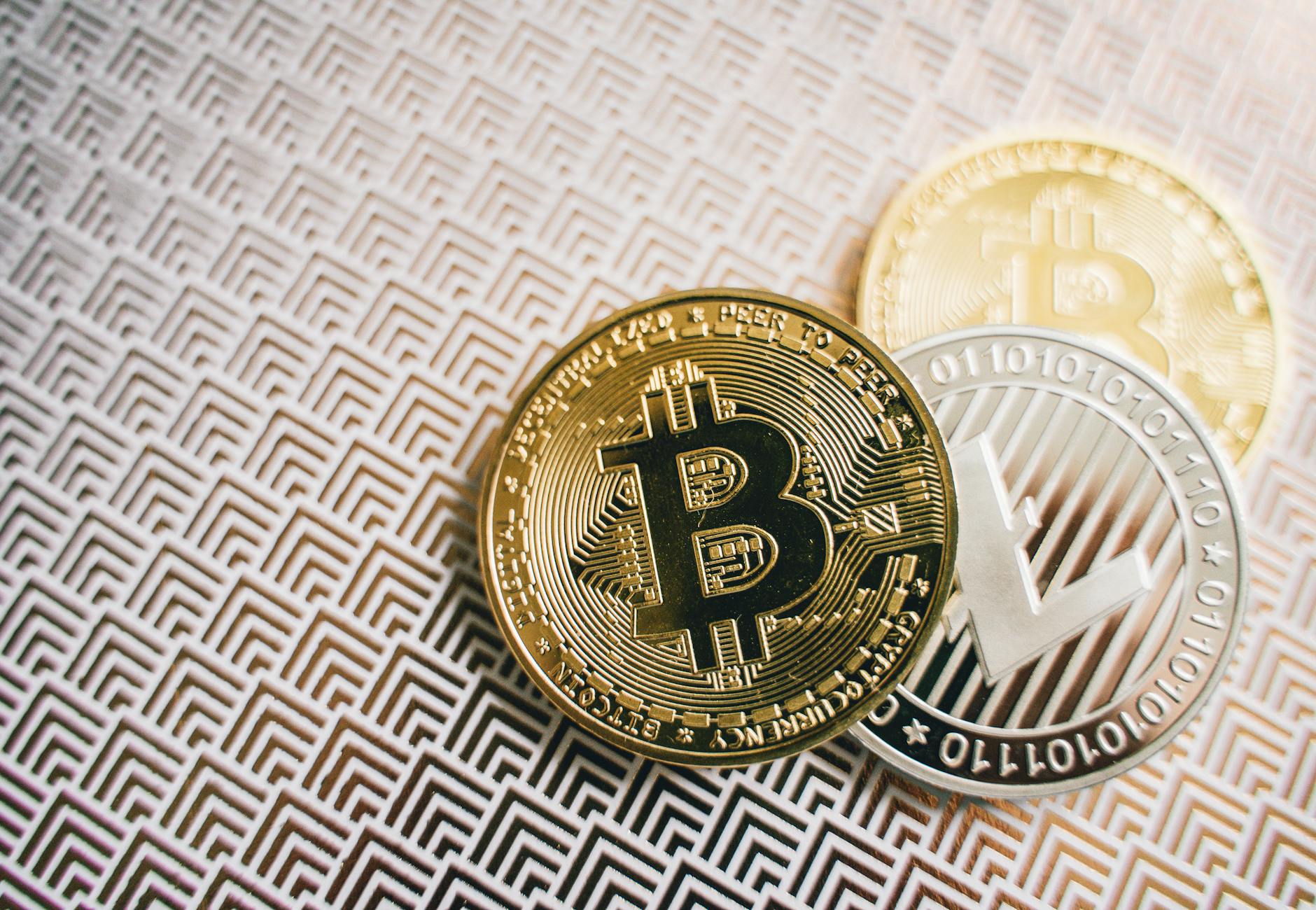Blockchain unlocks private market flow: New Access for Smaller Investors
- Get link
- X
- Other Apps

Blockchain Revolution: Tokenization Opens Private Markets to All Investors
📌 The Exclusive World of Private Markets Cracks Open
🔗 For decades, access to the most promising startups and high-growth private companies has been limited to a select few: institutional investors, high-net-worth individuals, and well-connected family offices. The traditional private equity landscape has been characterized by high capital requirements, lengthy lock-up periods, and a distinct lack of transparency. This exclusivity effectively shut out the vast majority of investors, leaving significant potential returns untapped.
FLOW (FLOW) 7-Day Price Analysis with Daily Data: Market cap, volume, & price fluctuations. Tokenized private markets overview.
🔗 Historically, private equity firms have demanded minimum investments ranging from $250,000 to $25 million, while venture capital funds often require minimum commitments exceeding $1 million. Accredited investor requirements further restricted participation, excluding most retail investors from accessing these lucrative opportunities. However, the emergence of blockchain technology and tokenization is poised to disrupt this established order.
📌 Tokenization: A Paradigm Shift in Private Market Access
🔗 Blockchain technology is driving the creation of a parallel financial system, one that promises to democratize access to private markets by enhancing transparency, liquidity, and inclusivity. Tokenization is fundamentally reshaping private markets, transforming real-world assets into programmable, digital tokens.
⚖️ These tokens aren't mere digital representations; they incorporate compliance protocols and can be structured to offer fractional ownership to a wider pool of investors without causing price distortions. This innovative approach allows investors to gain exposure to high-growth, venture-backed companies through a single, liquid, and blockchain-native asset. No longer must investors endure waiting periods of 7-10 years for potential exits. Secondary markets and liquidity protocols are now facilitating the trading and rebalancing of portfolios more efficiently and at fairer prices than ever before.
Enhanced Functionality and Accessibility
📝 Tokenized assets offer additional features, such as embedded governance rights and performance-linked incentives. They also grant access to previously inaccessible assets, including pre-IPO unicorns, private credit, and even private equity and VC funds. This evolution mirrors the impact of ETFs in the 1990s, but with the added benefits of open networks and smart contracts.
Beyond efficiency gains, tokenization is about providing equal access to investment opportunities. Smaller investors, global participants, and underserved regions can now allocate capital to markets that were previously out of reach. Venture capital, the driving force behind modern innovation, is no longer confined to Silicon Valley insiders or sovereign wealth funds.
📌 Market Impact and Future Growth
⚖️ As the infrastructure supporting tokenization matures, with compliant issuance platforms and regulated secondary markets emerging, the financial landscape is moving towards a future where access to private market upside is a programmable right, not a privilege. This future is already taking shape, with tokenized funds, startup equity, and yield-bearing private debt instruments actively traded on both decentralized and centralized platforms.
⚖️ In 2024, secondary market transaction volumes for tokenized assets reached record highs of over $150 billion, nearly tripling the figure from seven years prior. Despite this impressive growth, these markets still account for only about 1% of the total private market value, indicating substantial potential for future expansion. The current value of tokenized private real-world assets (RWA) is approximately $14 billion, compared to a total addressable market of around $12 trillion, highlighting the enormous opportunity that lies ahead.
📌 Stakeholder Perspectives
The transformation of private markets through tokenization has garnered attention from various stakeholders, each with their own perspectives on the matter.
| Stakeholder | Position | Impact on Investors |
|---|---|---|
| Lawmakers | Cautiously optimistic; focusing on regulatory clarity. | Potential for stricter compliance requirements, affecting token issuance. |
| Industry Leaders | Enthusiastic; promoting innovation and broader access. | 📈 Increased availability of diverse tokenized assets. |
| Crypto Projects | Actively developing platforms for tokenization. | Expanding infrastructure and improving user experience. |
📌 Challenges and Opportunities
The shift towards tokenized private assets presents both challenges and opportunities. Regulatory clarity, investor protection frameworks, and investor education are crucial for ensuring the sustainable growth of this market. However, the momentum behind tokenization is undeniable. The demand for access to private markets is too significant to ignore, and the potential benefits are too compelling to overlook.
The financial system of the future will be characterized by interoperability, composability, and openness, blurring the lines between public and private, analog and digital, and developed and developing markets. Tokenized private assets represent more than just a new asset class; they signal a future where investment opportunities are accessible to all.
Despite the promising outlook, investors should exercise caution and conduct thorough research before investing in tokenized private assets. Regulatory uncertainties and the nascent nature of this market warrant a measured approach.
📌 🔑 Key Takeaways
- Tokenization is democratizing access to private markets by lowering investment minimums and increasing liquidity.
- Secondary markets for tokenized assets are growing rapidly, offering new opportunities for investors to trade and rebalance their portfolios.
- Regulatory clarity is essential for the sustainable growth of the tokenized private asset market.
- The tokenization of real-world assets has the potential to unlock trillions of dollars in value.
- Investors should carefully assess the risks and opportunities associated with tokenized private assets before making investment decisions.
The tokenization of private markets is set to reshape the investment landscape, creating unprecedented opportunities for both issuers and investors. The current regulatory uncertainty presents a challenge, but also a chance for proactive firms to shape the future of compliant token offerings. The next 2-3 years will be crucial in defining the legal framework and setting the standards for this emerging asset class. Furthermore, expect to see a surge in platforms specializing in the due diligence and risk assessment of tokenized assets, catering to a growing demand from both retail and institutional investors, with an estimated surge of 300% in the number of registered platforms by the end of 2026. The traditional barriers to entry in private equity are crumbling, potentially leading to a significant shift in capital allocation from public to private markets, with a portion of traditional asset managers beginning to integrate tokenization within their existing fund structures.
- Actively monitor regulatory developments related to tokenized assets in your jurisdiction. Regulatory changes could impact the value and tradability of your investments.
- Explore platforms offering fractional ownership of private equity and venture capital funds to gain exposure to high-growth companies with smaller capital outlays.
- Conduct thorough due diligence on tokenized assets, focusing on the underlying assets, the issuer's track record, and the smart contract security.
- Consider diversifying your investments across multiple tokenized assets to mitigate the risk of exposure to specific projects or platforms.
Tokenization: The process of converting rights to an asset into a digital token on a blockchain. This allows for fractional ownership and easier transferability.
Fractional Ownership: Dividing the ownership of an asset among multiple investors, making it more accessible to those with limited capital.
— Cathie Wood
Crypto Market Pulse
June 25, 2025, 15:10 UTC
Data from CoinGecko
| Date | Price (USD) | Change |
|---|---|---|
| 6/19/2025 | $0.3454 | +0.00% |
| 6/20/2025 | $0.3433 | -0.62% |
| 6/21/2025 | $0.3343 | -3.21% |
| 6/22/2025 | $0.3192 | -7.57% |
| 6/23/2025 | $0.3032 | -12.20% |
| 6/24/2025 | $0.3305 | -4.30% |
| 6/25/2025 | $0.3298 | -4.52% |
| 6/26/2025 | $0.3270 | -5.32% |
▲ This analysis shows FLOW's price performance over time.
This post builds upon insights from the original news article, offering additional context and analysis. For more details, you can access the original article here.
- Get link
- X
- Other Apps

